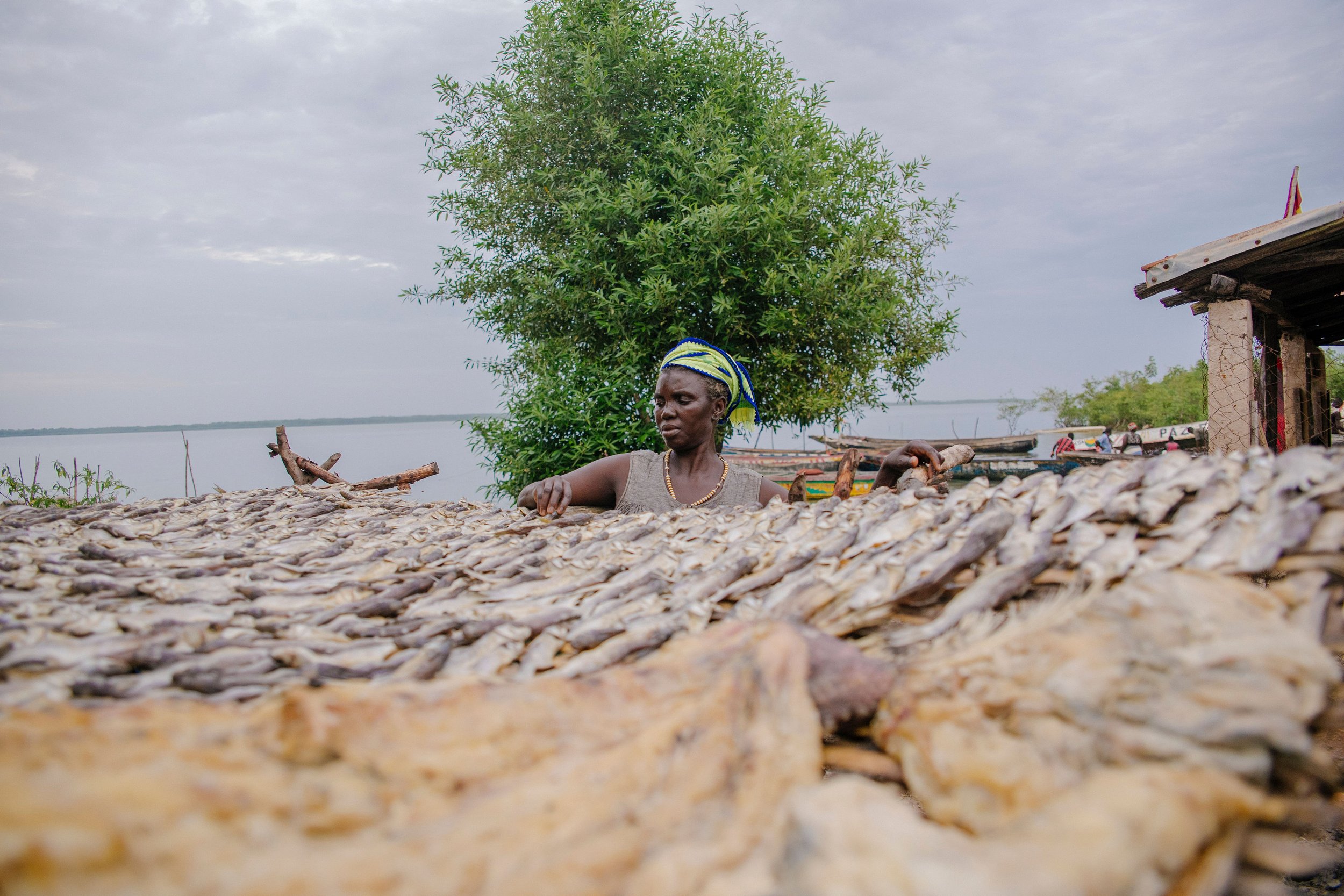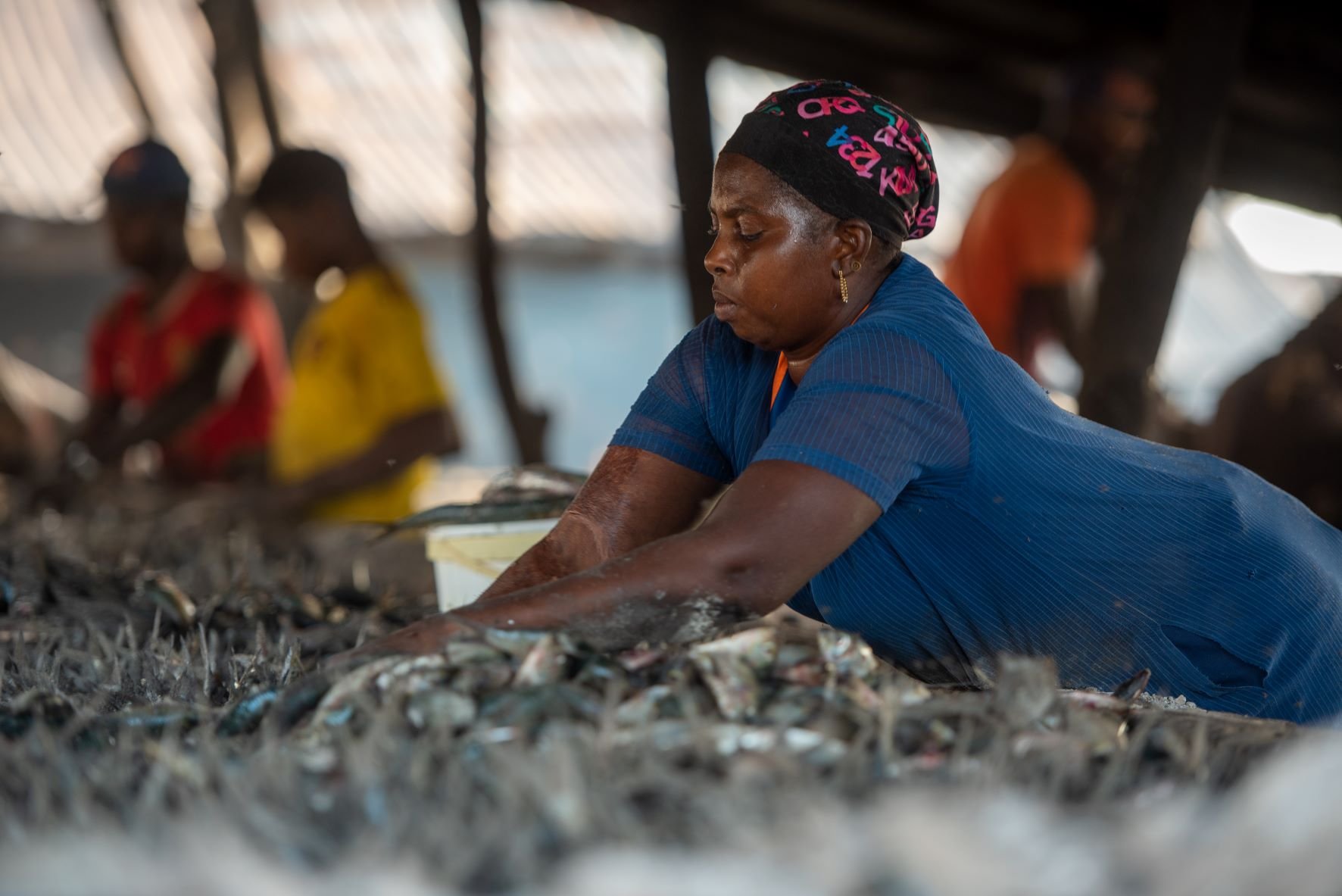Joint statement - In the delivering on 30x30 and financing conservation, debt for nature swaps are gaining momentum. However, debt swaps should be rejected as they lack transparency and give undue power to foreign organisations over the policies of marine resources management of developing and small-island states.
Moving towards sustainable fisheries in Africa: A FAO discussion on foreign fishing access arrangements is essential
In this article, the author reviews the recent FAO access arrangements mapping report which focuses on access to developing countries waters by fleets of foreign origin. According to the FAO, this report is a first step towards facilitating “the identification of opportunities to enhance the trade of fisheries-related services, particularly for developing countries” with the objective of making access arrangements fairer and more sustainable.
Despite what FAO says, access to marine resources and markets is not yet secured for small-scale fisheries
A recent report assessing the progress made on food and agriculture-related Sustainable Development Goals glosses over the fact that around the globe, men and women in the artisanal fisheries value chain still face incredible hurdles in seeing their access rights respected. IYAFA has catalysed recognition for small-scale fisheries important roles in food security and livelihoods, but now action on the ground and concrete results are needed.
WTO agreement on fisheries subsidies: a mouse is born
For the agreement to contribute effectively to the Sustainable Development Goals, it is essential that the forthcoming negotiations, prior to the thirteenth ministerial conference, focus on the main threat to artisanal fisheries in Africa: overfishing and overcapacity, especially by foreign-owned vessels.
Fisheries management in West Africa: the example of sardinella
Activities of Senegalese trawlers in Liberia: the companies incriminated by CFFA, SOPERKA and PEREIRA, react
SOPERKA, a Senegalese fishing company, in a joint venture with the Spanish company Grupo Pereira, wished to react to our article “Experimental fishing or experimental pillaging in Liberia?” Mr Kandji, Managing Director, Mr Serrano, from the company Pereira, adviser to SOPERKA for its fishing operations, and Mr Perez Bouzada, a lawyer, who defends the interests of the company Pereira, expressed their views on a series of issues raised in the article.
UN Ocean Conference political declaration: where are the fishers?
The final declaration fails to appropriately acknowledge the role and importance of the biggest group of users of the ocean, - the artisanal fishers-, while it encourages private-public partnerships, capital market instruments and other forms of financing, that might end up destroying coastal fishing communities.
Senegal and Liberia will conduct joint fisheries research to evaluate Liberia fisheries viability. For Liberia ‘carabineros’, this may come too late
Sponsored by the World Bank, as part of their Liberia Sustainable Management of Fisheries project worth 40 million euros, this research campaign will take advantage of the CRODT research vessel, the ITAF DEME, launched in 2021 with the EU-Senegal Sustainable Fisheries Partnership Agreement (SFPA) sectoral support.
Small-scale fishers call for global leaders to act now on oceans at UN Ocean Conference
JOINT PRESS RELEASE: Small-scale fisheries are small in name only. Half a billion people – 7% of the global population – are at least partly dependent on them for food, employment and income. They are the largest group of ocean users, have contributed the least to the ocean emergency, and are among the most affected by it. Yet their needs, roles and rights are often ignored, and they are generally sidelined or excluded from major policy discussions that directly affect their lives and livelihoods.
Certifying the unsustainable: The Fisheries Improvement Project in Mauritania
The strategy of transforming seafood industry through voluntary partnerships and market-based incentives is the approach currently favoured by many environmental NGOs and donors. The case of Mauritania reduction fisheries “Fisheries Improvement Project” highlights the fundamental flaws with the corporate friendly approach and the urgent need to resist this model becoming normalised.
West Africa: PESCAO should be more effective and attentive to artisanal fisheries
The PESCAO programme for the improvement of fisheries governance in West Africa, financed by the EU from the 11th EDF Regional funds, started in June 2017 and will end in June 2024. After nearly 4 years, an evaluation is underway to assess the results obtained and to see how to improve its implementation, in a context where the countries of the ECOWAS region are focusing on the development of a blue economy strategy.
Making fish worth its weight in gold: granting better access to markets for women in African artisanal fisheries
The Sustainable Blue Economy Finance Initiative: How to destroy the oceans responsibly
Efforts to make blue economy sustainable have led to increasing calls for better regulations on investments. The European Commission has provided funding for the United Nations Environment Programme (UNEP) to launch the Blue Economy Finance Initiative (BEFI). The BEFI has been celebrated in international conferences about blue economy, however, this article highlights the inherent weaknesses of voluntary guidelines in mitigating the threats financial investors pose to the destruction of the planet.
Debt-for-nature swaps and the oceans: The Belize Blue Bond
This second article of our series on financialisation and the blue economy covers TNC’s recent debt-for-ocean swap in Belize, news about TNC’s “audacious plan” of other debt swaps in other countries, the history of debt swaps and how the recent swaps reflect the financialisaton of conservation and finally, why these debt swaps are worrying for small-scale fisheries.
EU-Mauritania SFPA: The requests of the Mauritanian artisanal fisheries and civil society
This week the European Parliament is discussing a first draft by rapporteur Izaskun Bilbao on the Sustainable Fisheries Partnership Agreement between the European Union and Mauritania. This agreement is of great interest to the EU fisheries sector and is the most expensive of all fisheries agreements between the EU and third countries.
How will the EU contribute to support sustainable artisanal fisheries in Africa through its International Partnerships
The new EU regional programming for Africa gives fisheries and oceans greater importance. It also focuses more on small-scale fisheries stakeholders and civil society organisations, which is an opportunity for them to make their voice heard. This article covers a summary of the 2014-2020 and the ongoing 2021-2027 programming, calls for more policy coherence and recommends increased participation of stakeholders for greater and efficient use of the EU funding.
Joint statement - European and African decision-makers should join forces to support sustainable artisanal fisheries in Africa
In view of the summit that will bring together the leaders of the European Union and the African Union in Brussels on 17th and 18th February 2022 and in the context of the International Year of Artisanal Fisheries and Aquaculture (IYAFA), six civil society and professional organisations call the EU and AU to take concrete action in three key areas. Click on the link to read more.
The new EU-Mauritania agreement: towards a sustainable management of small pelagics in West Africa?
In this third article in the series on fisheries in Mauritania, the authors review the state of overexploitation of small pelagic stocks, look at the ways the EU SFPA seeks to address the issue and come back to the demand of several stakeholders for a regional fisheries management organisation for shared small pelagic stocks.



















